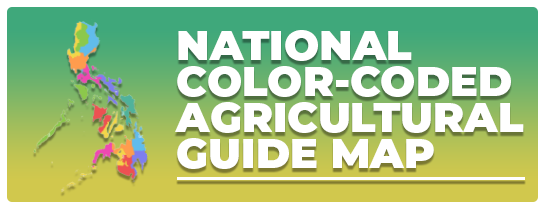Seafarer turned smart tech, high-value crops farmer
Posted by: RAFIS DA6 | Posted at: August 10, 2025
In an era when many young people leave rural areas for work in cities or abroad, 32-year- old former seafarer Revie Palmejar chose a different path, returning to his hometown in Brgy. Ilongbukid, Badiangan, Iloilo, to pursue smart and sustainable farming. After spending five years working on cargo ships, Revie heeded the pull of the soil; he put up the 8,000-square-meter Panudlak Integrated Farm and slowly built the dream he had always owned.
It wasn’t until the COVID-19 pandemic, when global lockdowns and food insecurity gripped the world, that Revie realized the importance of farmers to survival. Vast tracts of fertile lands in his community were left uncultivated, and there was a lack of young people who wanted to pursue careers in agriculture.
“That was when I realized I had to do something not just for our land that lay idle for years but to inspire other young people,” Revie recalled. His family owns land inherited from his World War II veteran grandfather. For years, it is left uncultivated—abandoned by a generation seeking opportunities elsewhere. His three brothers pursued maritime careers, while his other two siblings became a nurse and a fire officer.
Revie’s journey from seafarer to farmer was not linear. While still working at sea, he sought financial stability by investing in rice farming for nearly three years. Unfortunately, this venture did not meet his expectations, primarily due to his limited technical knowledge of rice cultivation. As a result, he began exploring vegetable production, which he soon discovered to be a more promising and manageable option.
Revie’s passion for farming was ignited when he spoke at a 4-H Club event, where he shared his inspiring journey from life at sea to life on the farm. That opportunity introduced him to the Department of Agriculture’s Young Farmers Challenge (YFC) Program. Encouraged by friends and mentors like Randy Carmen of the Municipal Agriculture Office, Revie and his cousin Charles applied under the YFC Startup Category with a Business Model Canvas (BMC) centered on ampalaya production. Their success in the program not only earned them a Php100,000 financial grant but also unlocked access to significant networks, new technologies, and essential training opportunities. The program opened doors to seminars, technical training, and technology transfer programs, most notably, a Korean government-funded training under the Ministry of Agriculture, Food and Rural Affairs – Education, Promotion, and Information Service in Food, Agriculture, Forestry, and Fisheries (MAFRA-EPIS).
“YFC helped us meet the right people and technologies, ” Revie said. “From there, we went from learning on YouTube and Facebook to being trained by experts and becoming adopters of precision farming.”
Revie gained access to cutting-edge agricultural techniques through workshops facilitated by Badiangan’s Municipal Agriculture Office, the DA, and international partners such as South Korea’s MAFRA-EPIS. He became one of the second batch of Filipino farmers trained in Smart Greenhouse Technology at the Western Visayas Integrated Agricultural Research Center (WESVIARC) in Jaro, Iloilo City. The smart greenhouse technology system uses automated irrigation, temperature control, and precision farming tools. This training laid the foundation for the farm’s shift from conventional to high- efficiency greenhouse cultivation.
“I was inspired by Korean farmers and how they used technology to increase yield while reducing labor and input costs,” Revie shared. “So, I adapted their methods using local materials and even invented a few systems of my own.”
The use of tools such as 5-in-1 sensors for measuring soil pH, salinity, and nutrient levels helped Revie implement bio secure, sustainable farming practices. Through his persistent research and benchmarking endeavors, he also learned to design his nutrient solutions and manage crop productivity based on scientific data rather than mere observation.
Panudlak Integrated Farm has achieved notable milestones in a short period. Their ampalaya production in 2022 yielded 7,700 kilograms in one cycle, generating over
Php269,000.00 in sales. This success enabled them to diversify into other high-value crops, such as bell peppers, cherry tomatoes, honeydew, and Hami melons.
In 2023, the farm’s melon harvest reached nearly one ton in a single cycle, earning over
Php200,000.00, a massive return from just 300 square meters of greenhouse space. With the strategic direct-to-consumer marketing and free tasting events in malls like SM City Iloilo, the melon was sold out even before harvest.
Recognizing the demand for year-round supply, Revie applied for the YFC Upscale Grant in 2024 and won at the regional level, receiving Php300,000.00 to build a third, more advanced greenhouse facility. This greenhouse will incorporate IoT technology, a rainwater harvesting system, and solar power to reduce dependence on external energy sources and mitigate risks associated with electrical interruption.
Beyond production, Panudlak Integrated Farm also began value-adding by transforming unsold produce into melon cider, wine, pickles, and salad. These products reduced waste, expanded the farm’s income streams, and appealed to health-conscious consumers and gourmet markets.
Revie’s vision for Panudlak Integrated Farm goes beyond profitability. He sees the farm as a hub for sustainable innovation and a training ground for aspiring agripreneurs, particularly out-of-school youth and returning Overseas Filipino Workers.
“I want to show them that agriculture is not dirty or backward. It’s smart, innovative, and profitable,” he said. By introducing lesser-known but high-demand crops like cherry tomatoes, French beans, romaine lettuce, and basil, Panudlak Integrated Farm plans to expand its offerings to elite restaurants, hotels, and even export markets.
Revie actively shares his knowledge with neighboring farmers and students at the community level. Many have approached him because they want to build their own greenhouses and replicate Panudlak Integrated Farm’s system. He believes in open knowledge-sharing, driven by the idea that “we learned this for free, so we should teach it for free.”
According to Revie, using a smart greenhouse offers several benefits, including protecting crop production from unpredictable weather conditions, growing crops year-round, and producing off-season vegetables that can command higher market prices. He trained one person to manage the two existing greenhouses, thoroughly explaining the do’s and don’ts and the proper protocols. He also emphasized that labor requirements are significantly reduced since most processes within the smart greenhouse are automated.
“Traditional farming is labor-intensive. Smart sensors and smart monitoring controls provide less burden on labor and aid in real-time data-driven decision-making.”
Plans are underway to register more value-added products and apply for food safety certifications, enabling the farm to distribute to institutional buyers and supermarkets. Moreover, Revie hopes to tap into agritourism and build a farm experience center where visitors can learn, taste, and explore sustainable agriculture.
From seafarer to soil steward, Revie has not only maximized his family’s land, which they inherited from his grandfather, a World War II veteran, but also planted the seeds of hope in his community. Through the support of the YFC Program, he discovered not only the potential in the land but also within himself, and turned that discovery into a thriving enterprise.
He chose to stay and not return to his work as a seafarer, believing he could make a greater impact by helping others and inspiring more people to pursue farming. His vision is to transform his farm into a learning hub that promotes the value of modern agricultural practices, moving beyond traditional methods.
As he often tells aspiring farmers, “Don’t rush success. Trust the process. Mistakes are part of the journey, but every challenge is a step toward the harvest.”
Indeed, as Panudlak, the farm’s name rooted in the traditional Ilonggo term for “first sowing” continues to grow, so does its impact.
“Bibigyan ka muna ng problema na magbibigay sa inyo ng kalakasan at tibay para harapin pa ang mga pagsubok sa ngayon at sa iba pang mga pagkakataon.”###
Text by Sheila Mae T. Cocjin/DA-RAFIS 6
Photos by: Khrysma Dei Caldina & Sheila Mae T. Cocjin/DA-RAFIS 6














